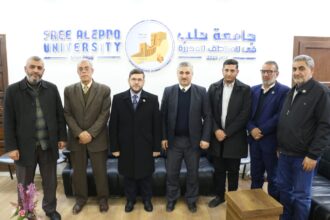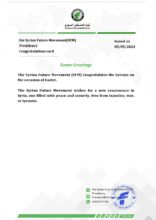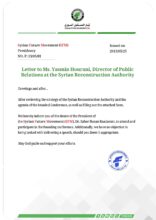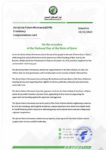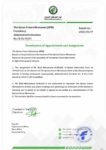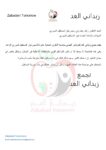Cancer of Asma Al-Assad (Healing of Syria)
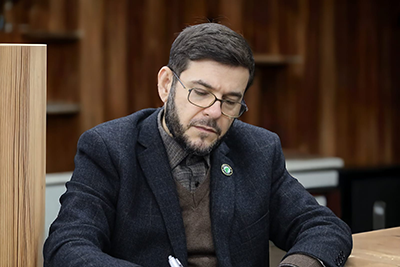
By Dr. Zaher Baadarani
President of the Syrian Future Movement (SFM)
Death and disease remain inherent characteristics of human existence, from which there is no escape. All humans, good and bad, virtuous and sinful, old and young, will inevitably experience death and disease. Thus, it is quite natural, regardless of the passage of time, to hear about the deaths of global leaders and figures, and the tyrants of Syria and their supporters are no exception.
Asma Al-Assad, the wife of the Syrian President, who has been known as the shadow president, was previously diagnosed with breast cancer and has since recovered. Today, her life continues with the flow of blood through her veins and arteries, and we will not discuss the reactions to the announcement of her illness, whether they are of joyful mockery or sympathetic sadness.
It is not surprising that Asma Al-Assad’s cancer was officially announced via the presidential platform as she enters the treatment phase, which will make her absence or sidelining evident. I said a few days ago at a meeting for the Syrian Future Movement (SFM) cadres in Maryland, USA, that announcing the illness is one thing, but the method and manner of announcement is another, and this should be approached in a purely political manner.
It is undeniable that Asma Al-Assad, with the consent or support of some major countries, has taken a strategic and pivotal position as part of the current scene and as a cornerstone for building Syria’s future within the theoretical vision promoted by the Assad regime since its rise to power. This has established a principle that reform or resolution must originate from the current structure of the Syrian regime, ignoring that the country’s plight is a direct result of their own actions. As we know, Assad’s return to the Arab League was contingent on a clear trade-off with the Assad regime that required him to undertake general, comprehensive, continuous, and apparent reforms. The last Arab summit in Bahrain showed that Assad failed to alter his behavior to stabilize the current situation and create a genuine environment for power sharing with the opposition towards a peaceful transition of power. His insistence on superficial, non-essential policies has led many to believe that Assad and his regime’s pillars, including his wife who dreams of her son inheriting the presidency, are resistant to any internal reform.
This resistance was met with an Arab move to silence Assad in the Arab League, treating him as if he did not exist, as he ignored all his promises to them. He was barred from speaking, known for his flowery and superficial theorizing, as well as his habit of pointing out the faults of other leaders, despite being the youngest among them. He was present but silent at the Arab League meeting, a subtle signal that we have had enough of your speeches, while your actions on the ground completely contradict them.
Then came the second move, politically breaking his stronger wing (his wife) in a calculated foreign political decision, intersecting with the desires of several influential countries in Syria to forcibly remove her from the general scene. Otherwise, she would lose her son Hafez’s life, just as Hafez Al-Assad the father had previously lost his son Basil (the uncontested heir to his chair).
It is clear from the presidential statement that removed her entirely from the scene, embarrassing any possible contact with her, although it could have simply stated that her offices would continue to operate and she would supervise all activities and tasks from her quarantine, directing as necessary. However, this did not happen. This also indicates that the phase of preparing her son (Hafez) for presidency has also ended, effectively crushing the current head of the Assad family and completely removing his strongest wing from the Syrian scene. In comparison, Hafez Al-Assad’s wife, Anisa Makhlouf, despite her old age and numerous ailments, remained in full control of some of the presidency’s mechanisms and surrounding circles, with no statement ever indicating her illness or incapacity at any stage.
Here we see a wing possibly moving to exploit this vacuum created by Asma Al-Assad’s illness and quarantine, namely Bashar Al-Assad’s brother Maher, who was greatly bothered by the First Lady’s expansion and interference. This may create space for him to re-enter the struggle with his brother over state resource management and control of governance.
It is also worth noting that the security breach that affected Iranian officials in Syria recently was possibly facilitated by the Assad family themselves, particularly ‘Hafez Al-Assad the grandson’, who made sure to meet most Iranian leaders personally, presenting himself as a forthcoming strategic ally. Some of our information and reports indicate that a meeting took place on the morning of the shocking assassination operation at the Iranian embassy in downtown Damascus by Israel, with Hafez Al-Assad the grandson in the building before he left and then it was bombed.
British pressure (specifically) adds to the equation that removed Asma Al-Akhras from the scene, and it is likely that it was a contributing factor in the issuance of the presidential statement in its current form, with Asma Al-Assad seeking British protection while holding her citizenship.
We have detected British displeasure recently, and indeed, we have felt that Britain, in particular, has been active on a high-security level, attracting Syrian national figures to Britain for meetings, and trying to draw a real picture of the method used by Assad and his family in particular in shaping Syria’s fate and kidnapping it as if it were their personal farm from father to son to grandson.
Syria is undoubtedly undergoing a new internal transitional phase, and it seems that a phase of transitional power in Syria is imminent with all these dramatic developments. Will Asma Al-Assad’s cancer be the reason for Syria’s healing from its afflictions or will it lead to more chaos and turmoil? Can Assad, with his mouth shut and his wing broken, continue to draw balances that keep him in the political scene for a longer period, or will the dimming prospect of his son’s inheritance open the door to all possibilities anew? And if Asma Al-Assad recovers from her cancer again, will Syria recover from the cancer of Al-Assad’s rule, which has been devastating and corroding its structure for decades?
Dr. Zaher Ihssan Baadarani
Presidency office
Article
Syrian Future Movement (SFM)

